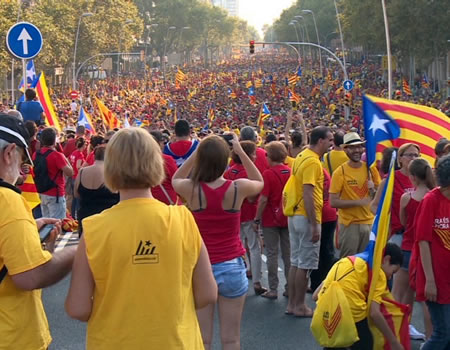The September 6 parliamentary vote and the ensuing political fracas are the latest iteration of a political conflict that goes back over several decades to the 1938 abolition of Catalan autonomy by General Francisco Franco.Although Catalonia, a wealthy region in north-eastern Spain, has always been autonomous, it has never been fully independent, nor has it necessarily wanted to be, even though a secessionist current has always bubbled under the surface. But what we find interesting is the manner in which this is being resolved. When the Catalan government could no longer suppress agitation for full independence, as opposed to continued autonomy, it decided to put it to a vote. The current push and pull between Catalan president, Carles Puigdemont, and the central government in Madrid is over whether the regional government has acted in violation of the Spanish constitution. Prime Minister Mariano Rajoy certainly thinks so, hence his condemnation of the September 6 vote and the October 1 election. He has gone to court in a bid to overturn the Catalan legislation and forbid the October 1 referendum from being held. For his part, Puigdemont has argued that Catalans have a “democratically inviolable” right to organise a referendum and decide on their destiny as a people.
As the law courts struggle to disentangle these claims and counter-claims, there are at least two key lessons on autonomist agitations and how they can be dealt with. First, and as Madrid itself is learning, there is always a potentially dangerous sliding scale in which, depending on how they are handled, calls for autonomy can morph into calls for complete independence. In Nigeria, it can be reasonably argued that the historical failure to respond properly to the agitation for political restructuring is one of the main drivers of today’s secessionist clamour. When the ‘national question’ is not intelligently handled, it can degenerate into a crisis that threatens the very survival of the state as a single entity.
Furthermore, there is an object lesson to be learned from the way in which the two sides in Spain are proceeding under the umbrella of the law. This sharply contrasts with the situation here at home where leaders of autonomist movements are threatened by the state with jail and violence. For their part, leaders of autonomist movements have an obligation to state their arguments clearly and pursue their cause within the ambit of the law. So far, we have yet to see this.




